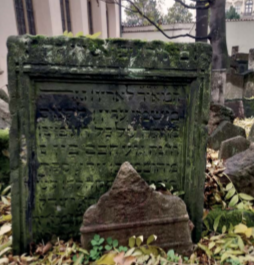From scientific to personal discovery

In 2007 I visited Prague for the first time, coming to participate in a conference in which Prof. Aleksi Sedo and I were organizing a symposium session. Although we had worked together on a review article several years prior to the symposium, all our communication had been through a vast number of e-mails. We had not actually met before and at our first meeting and over the following week, a bond was formed.
The conference was a great success, I participated in events of the Institute of Biochemistry and Experimental Oncology (1. LF) directed by Prof. Sedo, enjoyed interacting with the laboratory members and was able to travel and see much in and around Prague. Since then, our interaction has grown and I have now visited Prague ten times, giving lectures on aspects of my own research on each occasion, and have even been honoured with a Visiting Professor position. I have seen the students and fellows in Prof. Sedo’s laboratory develop new avenues of exploration in understanding glioma development, embracing new techniques and modalities along the way.
“Manic obsession” for Franz Kafka
On each visit, in addition to talking about science, one of the most enjoyable aspects has been the exploration of our world views. Such explorations necessitate catalysis with alcohol for their proper development and Prof. Sedo has facilitated this by introducing me to the smaller bars frequented more by the local population than by tourists. It is during these exchanges for more than 12 years now that we have reached, despite our very different backgrounds, a commonality of understanding. Background is important. I grew up in Great Britain, but Czechoslovakia was within my field of view. Throughout my childhood, we had a stream of young women coming from Europe after school, living with us for a year as an “au pair” while learning English. In 1968, Danka from Prague lived with us. She was the daughter of, I believe, a highlevel functionary in Dubcek’s administration and when the Warsaw Pact troops entered Prague, she was understandably concerned for her family. After long hours trying to establish a telephone connection with Prague, she was able to contact her family and return.
For me, even at the young age of 11, I realized this was history in the making and I wanted to know more. I became fascinated by the films of the Czechoslovak “New Wave”, especially Milos Forman and Jan Kadar, and the use of dark humour and surrealism to channel protest. This led in my teen years to an almost manic obsession for every word written by Franz Kafka. If ever I was in a position of being only allowed to keep one book, even today it would still be the Collected Works of Kafka. And this brings me back to the conference in 2007.
Frequent visits to Josefov
The Hotel hosting the conference was situated next to the New Jewish cemetery where Kafka is buried. As for so many other people, this is a place of pilgrimage for me and I make the trip to Zelivskeho every visit, sitting quietly on a bench trying to make sense of the world (an effort that so far has not yielded any significant results). What has resulted, however, from all the above is a true love for Prague. I have lived in several countries, the UK, Canada, Israel and the USA, but nowhere do I feel as comfortable as I do in Prague. I am aware enough to know that this is not the “sickness” of a tourist where, through the lens of vacation, every location looks better than your place of work! My frequent visits to Josefov, and a visit with my wife to Terezin, cemented a strong feeling of connection to the earlier Jewish community of Prague. But this was a feeling – nothing substantial or concrete.

Direct rabbinical family line living in Prague
This changed, however, in October last year. One of my cousins had begun investigating the lineage of the family of my father’s mother and had come across a document prepared by our Grandmother outlining a direct rabbinical/academic family line living in Prague from the 16th to 18th centuries most of whom are buried in the old cemetery in Josefov. Prof. Sedo immediately grasped the significance of this, not only in a general way but more specifically to me and he organized a guided tour of the family burial sites by the Josefov cemetery historian. As a researcher, I am constantly looking ahead from the present to what may lie in the future, but my world view is firmly anchored by our history. Thus, I take great pleasure that my comfort from Prague stems now from something more than just feeling, that there is at least a little piece of me that originates from here.
Jonathan S. Duke-Cohan,
Visiting Professor at Charles University

